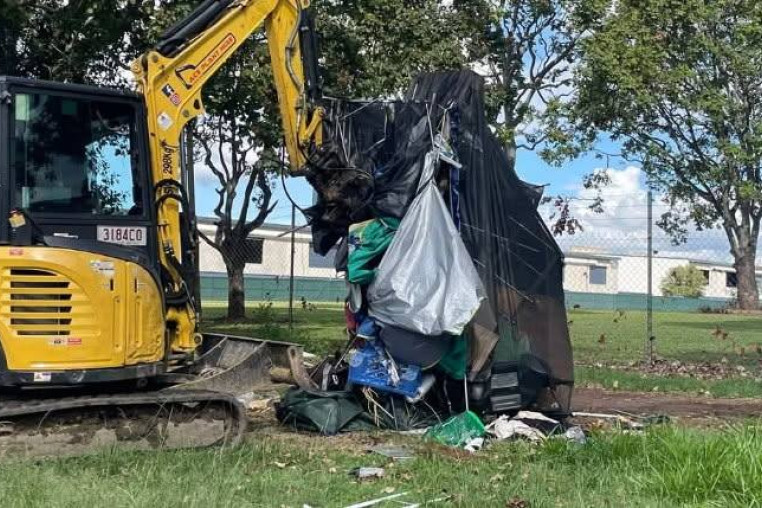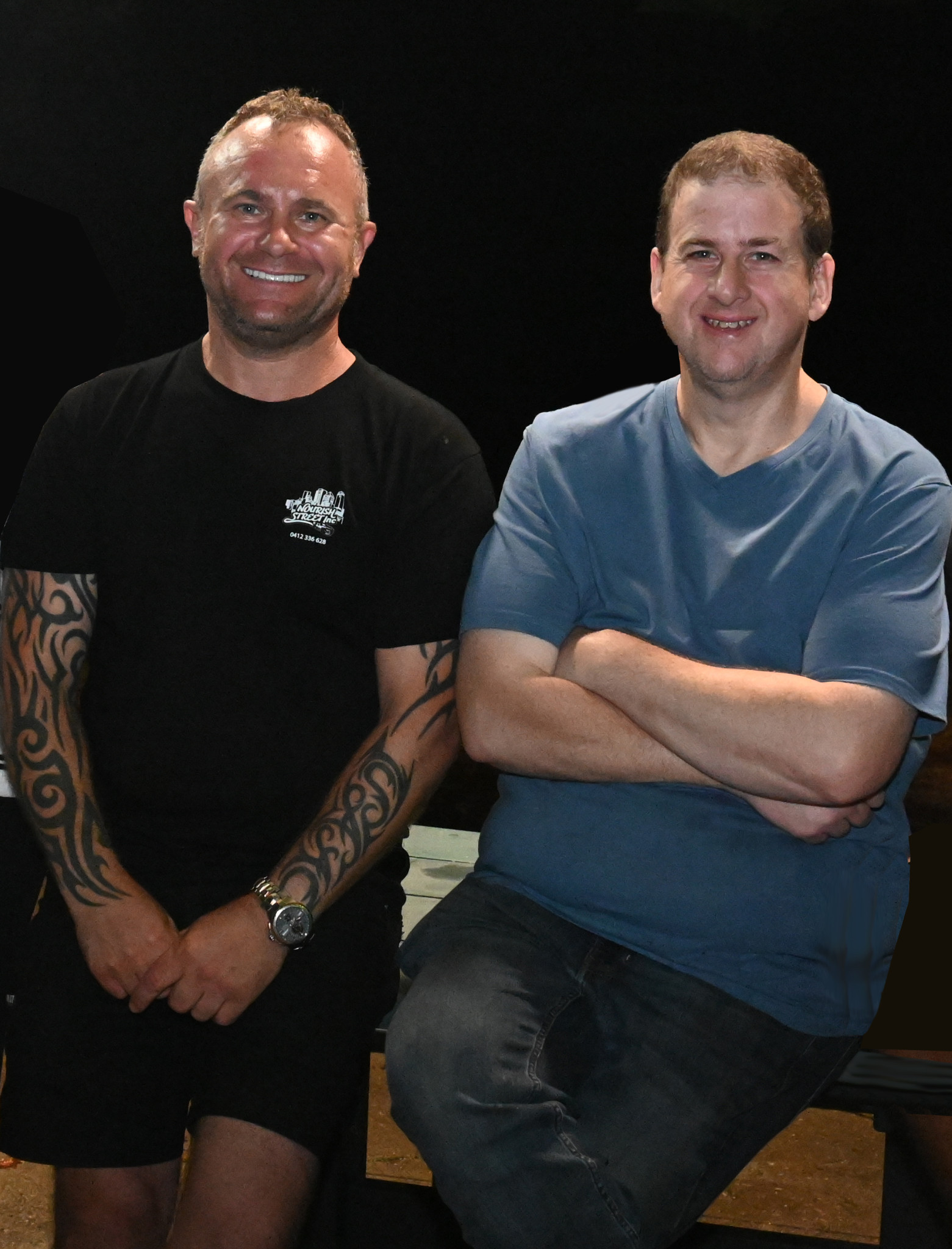Council
8 July, 2025
From camps to courtrooms
MORETON Bay Council has been taken to the Queensland Supreme Court by two local charities and human rights lawyers, over two separate matters relating to Council’s actions against the homeless community.

The legal challenges have been launched by Basic Rights Queensland alongside pro bono lawyers from Hall & Wilcox and other law fi rms, who are representing rough sleepers and local charities Northwest Community Group and Nourish Street.
The fi rst matter, heard in court last week on July 2, related to 12 injunctions fi led by homeless residents of a bush reserve next to Goodfellows Road in Kallangur.
The residents were fi ghting against move-on/compliance notices given by Council, stating they had to leave the land by July 2.
Many residents had already received move-on notices from Lawton’s Eddie Hyland Park in April.
The second matter relates to actions taken by Moreton Bay Council against the homeless community since December, with claims Council was fl outing the state’s Human Rights Act.
Some of the claims against Council include that it unlawfully repealed rules making it illegal for anyone to camp on Council land, and that compliance notices and impounding of possessions were improperly made.
This matter will be heard in November.
At the fi rst injunction hearing on July 2, Council agreed to temporarily not demolish camps at the bush reserve, pending another court appearance on July 24.
City of Moreton Bay CEO, Scott Waters, said the injunction applicants have been allowed to stay under had certain conditions, including they did not impede reasonable access by other community members and Council off icers undertaking their duties.
Other rules included they did not conduct illegal behaviour and kept the area clean, safe and tidy.
Nourish Street founder, Beau Haywood, said the issue they had with Council was that it was targeting people who could not get access to alternative housing.
“Council knows very well that these specialist housing services, they say they’ve engaged, are at capacity,” he said.
“These people have nowhere to go except waitlists and referrals, and yet they’re moving them on into nothing.”
“At the end of the day, we don’t want people on public land either. We want everyone to get appropriate housing that suits them.”
Mr Haywood said he fully supported housing services going through and taking names of everyone, especially if this was Council’s approach to “de-escalate” the situation.
“Whether or not this is the Council’s other approach to fi nd these people accommodation, I’ve got nothing against it,” he said.
“It’s just a shame it has to come to this, of having to take them to court.
“We don’t want to see homelessness as much as the next person and we’re certainly not promoting it.
“What we’re pushing back on is the cold reality that people are being moved on with nowhere else to go.
“Displacing people into nothing is not a solution either — it’s cruelty dressed up as compliance.”
Mr Waters said bringing these matters before the court was “a waste of the court’s time and ratepayer resources”.
“This does nothing more than divert resources away from the ultimate goal of achieving housing outcomes for the individuals,” he said.
“Council’s willingness to work through an approach of protecting its community while seeking appropriate accommodation for rough sleepers should be noted by Basic Rights Queensland, Northwest Community Group and Nourish Street.
“These groups, fi rst and foremost basis must be working to achieve safe and secure accommodation for our most vulnerable, rather than facilitate continued rough sleeping in public areas.
“The Council will be maintaining its current position to ensure public health and community safety at the upcoming hearings.”
Council declined to tell The Sentinel the cost of current legal proceedings.
Mr Waters added daily patrols would be taking place at the site to “ensure compliance against public health and community safety standards”.
He also noted the decision meant some public areas owned by Council may not be accessible and asked for “patience” as they worked with stakeholders to support those sleeping rough.


